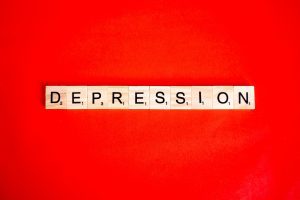There are some ways of thinking which play into the negative cognitive triad, these are called cognitive biases. Spotting cognitive biases when they occur can help you identify unhelpful thoughts and challenge them.
It is also a good idea for you to identify which cognitive biases you are prone to more often. This will help you notice them when they occur. For each of the following, give yourself a score of 1,2 or 3.
A score of 1 means you notice yourself thinking in the way described very rarely. A score of 2 means you think that way fairly often and a score of 3 means you think that way a lot.
Once you have a score for each, note down which cognitive biases you put a 3 against and keep this list with you as a reminder to be alert to this way of thinking occurring.
Cognitive biases
Filtering.
Only seeing the bad in your situation or the bad things about yourself. You ignore or disregard any of the positives, including the positives of your personality or accomplishments.
Over-generalising.
Believing one negative thing makes everything else related to it also negative.
For example, if you were to grow a spot on your chin, you may perceive your entire self to be hideous. Or if you were to fail your driving test once, you may believe yourself incapable of ever passing.
In reality, one small mistake or imperfection is unlikely to have the much wider impact you perceive it to have. In many cases, others may not even notice or worry about the thing you are concerned about.

Blowing things out of proportion/ making a mountain out of a molehill.
Overestimating the negative consequences of something and reacting in a way which seems extreme to others.
For example, you may become incredibly upset that someone disagrees with you on a work issue, even if they ordinarily agree with your perspective.
Catastrophising.
You start thinking about the ever-worsening consequences of a negative event, resulting in an eventual catastrophic ending.
For example:
You bang into your boss at work -> you assume they are annoyed -> you think this will go against you in your next one-to-one -> you anticipate getting upset or angry during the one-to-one as a result -> your negative emotion results in you saying something you shouldn’t -> you lose your job -> you can’t pay your mortgage -> you become homeless.
This way of thinking is also extremely common in anxiety. You can read more about anxiety here.
All or nothing / black and white thinking.
Also called dichotomous thinking, this is thinking in terms of absolutes.
An example of this kind of thinking is thinking that you need to clean the whole house, or you may as well have not bothered cleaning at all. Another example is thinking that you must stick to a diet rigidly, but that if you break it you may as well binge eat.
Not seeing the middle ground as an option can result in you feeling as though you have underachieved (even if you have achieved a lot). It can also contribute to high levels of self-criticism and shame about how you acted.

Giving yourself hurtful labels/names.
Also called labelling, you call yourself hurtful things such as “ugly”, “worthless” and “coward”. This way of thinking is much like a school ground bully picking on you, except you can’t run away from your own mind, which makes it more difficult to deal with.
Noting that these thoughts are a common cognitive bias, and are a part of depression can help you stand up to the voice in your head.
Assuming other’s thoughts/ mind-reading.
Also sometimes referred to as reaching a conclusion based on arbitrary influence.
Rather than ask someone or accept that you have no way of knowing for sure what another person is thinking, you assume you already know they are thinking something negative about you. You then react in a way which matches your assumption, even though your assumption could be wrong.
For example, you assume that your partner’s short responses over WhatsApp are an indication that they are bored of you. You don’t ask them if anything is wrong or think of plausible less negative reasons for their response (such as they are with their friends or they are busy cooking).
Instead, you feel rejected and alone. As a result, you eat 2 tubs of ice cream to yourself. This then leads to more negative self-criticism.
Predicting the future/ fortune telling.
You decide you already know what the future holds. You believe there is nothing which could mean your future takes a different path or that the possibility of it taking another path is very small. Your predictions are bleak and hopeless.

Cancelling out the positive.
Also called disqualifying the positive, if you do see any positives about yourself or your situation, these are always followed by a negative which cancels out or lessens the positive.
For example, if you got a job interview but someone helped you put your CV together, you may think something along the lines of “I got an interview, but only because someone else helped me, I wouldn’t have got it on my own so I don’t really deserve it.”.
Min/Maxing
Minimising your achievements whilst simultaneously maximising your failures.
For example, getting a volunteering recognition award may be downplayed but missing a work deadline may be considered a huge failure.
Thinking everything is your fault.
Also called personalisation, you are likely to be overly critical of yourself if something goes wrong, even if it is unrelated to you.
For example, if someone is in a bad mood, you may automatically assume it’s something you have done to cause it or to aggravate them.
If your team misses a deadline at work, you may assume most of the fault, even though hitting the deadline was a joint responsibility.
Thinking in terms of “I should” and “I ought to”.
You feel you don’t measure up to some unrealistic standard you have set for yourself, and so you regularly think in terms of “I should” or “I ought to”.
For example, you could have achieved a “B” in an exam, but you feel you “ought to have gotten an A”.
Another example is thinking something along the lines of “I should only spend my money on others, because spending it on me is selfish”.
Spotting cognitive biases is the first step, next you need to challenge your thoughts.
Being aware of when cognitive biases occur is a fantastic first step towards changing your thinking patterns. We know that when we change the way we think about things it can change the way we behave and the way we feel.
You may want to consider writing down what was happening at the time you noticed a cognitive bias occurring and keeping a record over the course of a week. This can help you spot possible triggers or patterns and provide more understanding into why these thoughts are happening.
If you have a counsellor already, you may want to share this list with them so that you can discuss it together. Alternatively, if you do not have a counsellor, but do have a supportive friend or family member, you may want to discuss your list with them.
If you are currently looking for a counsellor and you would like to see if I would be a good fit for you then get in touch to arrange an assessment session. An assessment session is an opportunity for you to tell me about yourself and for us to discuss how we might work together.
You can reach me at sophie@sbcounselling.co.uk or 07588 117305.








